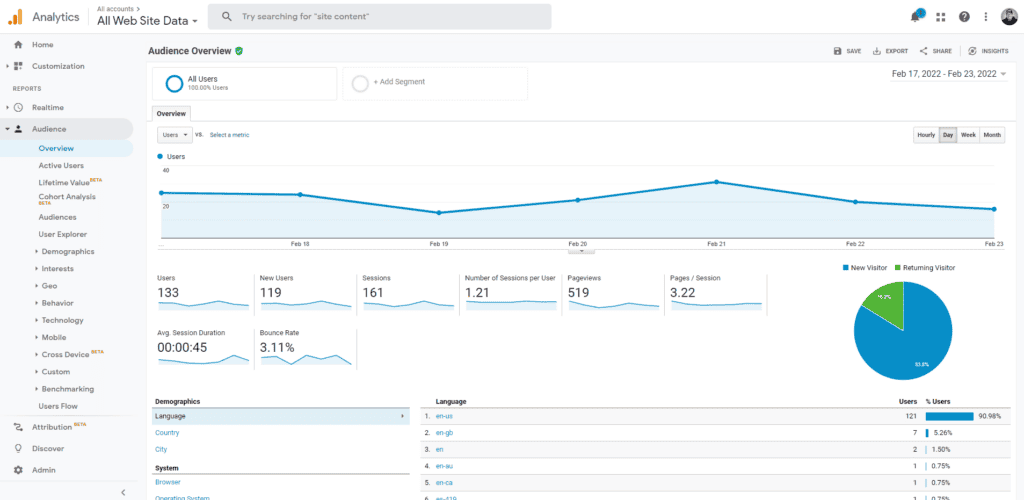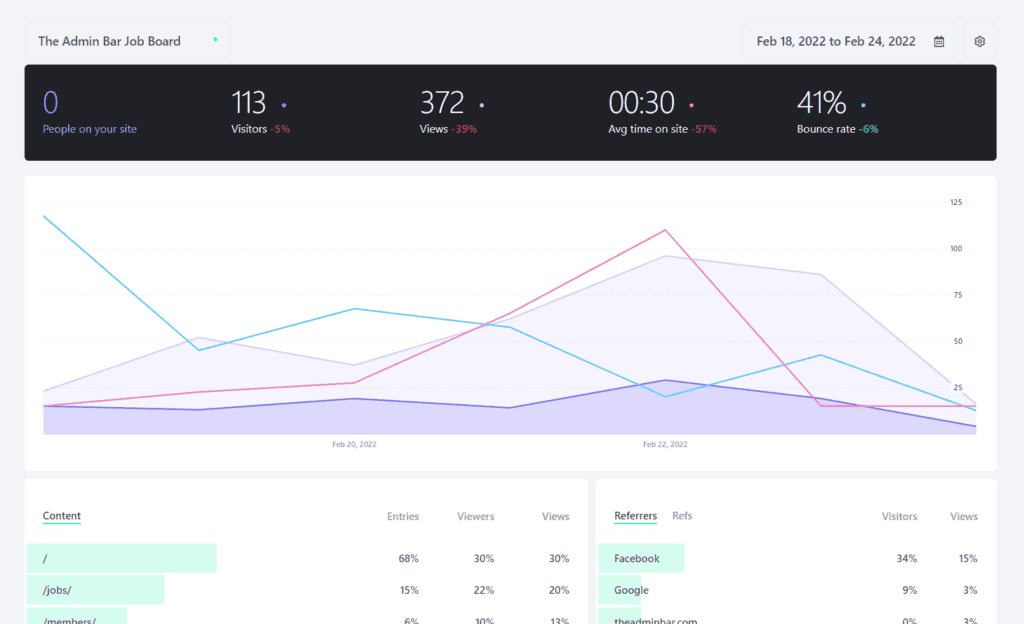Internet privacy isn’t something most people spend their days thinking about, but it’s an important topic that is affecting each and every one of us every moment we spend online.
As courts around the world move further and further towards protecting users, their data, and their fundamental right to privacy, it’s only a matter of time before we start setting hefty fines (even here in the US) for non-compliance.
One of the items on the frontlines of this conversation is analytics.
In this article I’m going to help you understand (in laymen’s terms) the privacy concerns with analytics software, and why I’ve made the decision to move my agency and all my clients to a privacy-first solution called Fathom.
Understanding what’s at stake
Have you ever wondered why so many huge and complex services (like social media, Google, email, etc.) are free? With millions of users worldwide, these companies could charge even a small amount and rack in big bucks — but they don’t.
Your data is worth more than your money
And the reason they don’t is because what they are getting now — your data — is simply more valuable than any amount they could charge.
We all know that the internet is spying on us — and none of us really care for it either.
You’ve undoubtably had one of those scenarios where you were talking about something with a friend or your spouse and all of a sudden, you’re being served ads for the very product you were discussing. It’s an eerie feeling.
This is all made possible by the fact that big tech companies have had free reign on the internet with little in place to stop them from monitoring your behavior. And with listening devices scattered around your home (and in your pocket), there’s no telling how far that monitoring goes.
Of course, these devices claim they are not listening to us unless we ask them to, but how else do they know to activate if they’re not constantly listening?

While the United States has been slow to do anything to protect their citizens from tech’s access, the same cannot be said in Europe.
In 2018 the European Union passed a sweeping set of laws called The EU General Data Protection Regulation (or ‘GDPR’), which helps to regulate the ways that companies can use, process, and store personal data.
While these laws specifically target anyone in the EU, it’s enforcement can go beyond European borders. In simple terms, it applies to anyone who collects, processes, or tracks data on European citizens.
Pinpointing whether or not you fall under these regulations can be a bit tricky — but with fines of up to 20 million euros, and similar laws in the US making their way through the courts now, it’s better to be safe than sorry.
Google Analytics on the frontlines
GDPR could be applied to all kinds of different businesses — but one of the first things to be targeted by violation lawsuits has been Google Analytics.
If you’re not familiar, Google Analytics is used on 29 million websites (about 87% of the internet) to monitor web traffic. Analytics are an extremely valuable tool for any website owner to better understand how their website is being used by its visitors and make data-based decisions on how to get better results.
Because it’s free (and extremely powerful), Google Analytics has become the default for anyone wanting to gather this kind of data on their website.

There’s just one problem… Google is an American company, and since the US does not provide the same level of protections for its citizens as they do in Europe, it’s in violation of GDPR.
In January of 2022 this became official with an Austrian court ruling Google Analytics in violation.
This case sets precedent for over 100 lawsuits currently in the court system and will have wide-reaching implications for the future of internet privacy and enforcement.
Google Analytics isn’t the only company in clear violation — but they are one of the firsts to be ruled on.
Avoiding complications and non-compliance
It’s still yet to be seen what kind of real impact (in terms of fines) this will have on everyday businesses (especially those outside of Europe), but the writing is on the wall.
Knowing this is coming down the pique, agencies like mine are faced with two choices:
- Audit each current and future client (one-by-one) to determine who needs to comply, cross your fingers, and deploy solutions based on each individual’s exposure.
- Comply
Presented with the evidence, the choice is simple for me — I rather everyone be compliant (whether they actually have to be or not) than spend my days trying to skirt around laws with technicalities.
So, I’m moving all my websites, along with my clients, to a privacy-first, GDPR compliant alternative; Fathom.
Why Fathom?
While there are several compliant analytics solutions on the market today, Fathom is the originator of the concept of privacy-first analytics.
Their directors (whom I’ve spoken to personally) are pioneering the privacy-first movement and have shown their dedication by hiring a dedicated privacy officer and working with the world’s top law firms to ensure they are staying ahead of the trends.
And while I initially sought them out for the compliance aspects, it turns out it’s just a whole lot easier to use too!
- Instead of needing to take a course on how to understand and decode your analytics, Fathom’s dashboard a simple, intuitive, single page that reports the information that’s most important to users.
- Their software is lightweight, which could actually improve a site’s SEO by allowing for better performance.
- Sharable dashboards make it easy for all stakeholders to be able to access analytics information.
- Automatic email reports give you an easy-to-digest overview of your site’s performance on a weekly or monthly basis.
- Their systems aren’t blocked by adblockers, which allows you to see a complete picture (unlike Google Analytics which is reported to only show you about 50% of your visits).
- And, if I’m being honest, the design is beautiful (I’m a sucker for good UI/UX!)

Unlike Google Analytics, Fathom’s business model is to sell software, not data. Coming in at $14 a month, it’s a small price to pay for the peace of mind — and investment I’m happy to make for my agency and my clients.
My responsibility
I feel it’s my responsibility to not only help protect and guide my clients, but to be a good custodian of any internet real estate I manage.
If I don’t like advertisers tracking my every movement around the internet, then why would I turn around and do the same to others?
I made this commitment in 2020 by partnering with Termageddon to provide Privacy Policies and Terms of Service documents (another privacy standard your business must comply with online), — and I will stay true to that commitment moving forward.
To avoid non-compliance issues, fines, and to simply do what’s right — the choice is simple, and I’m choosing Fathom.
Note: As of the date of this post, I’m currently working with my customers to transition them and their historical data to Fathom and expect a full migration by summer 2022.




